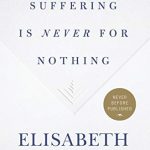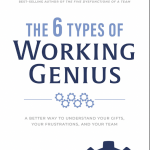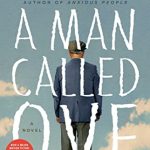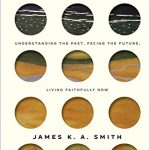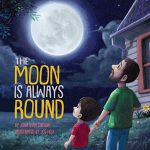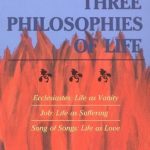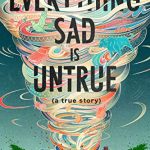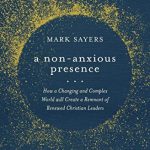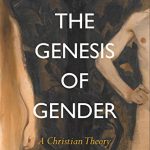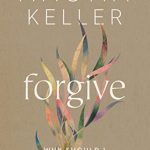This year I read 62 books in total. I tend to go down rabbit holes, as you might notice. This year I read several books by authors of color and several books about our current cultural moment, as well as several books on transgenderism.
This year was my first full year off from Seminary, so I caught up on current issues. Next year my plan is to focus more on perennial issues. I want to read more old books. There is something about reading an old book that helps you understand the present mess we are in and give you hope because many times in history, our world was in a worse place than it is currently, and that is so helpful for us not losing heart.
So here are my top ten books, from the tenth best to the best book I read, followed by the rest of the books I read this year. Also excited to add a book I have been working on with some friends to your reading lists in the near future. More on that at a later date.
Top Ten Books of 2022
10. Suffering is Never for Nothing
This was the first book I have ever read from Elisabeth Elliot outside of Through Gates of Splendor. She is so powerful, her grasp of the gospel is deep, and her understanding of suffering is stunning. This was a much-needed read for me this year. Our tendency is always to elevate our gifts over God’s provision. Our comfort over his plan.
9. The 6 Types of Working Genius
There are a few authors I have read every book they have written. In the modern age, there are fewer still. Patrick Lencioni is one of those authors for me. His books are quick reads packed with truth and practical leadership advice, minus the self-helpiness that fills so many leadership books today. Of all the books Pat has written, I would say this one was his best. I greatly enjoyed the book, the concept, and how it has changed how I view myself and the team I am a part of.
I stumbled onto Fredrick Backman after sever friends had added his works to their lists over the years. I read several of his books. He is not a Christian author, but his insights into the human condition are insightful. His style is so unique, and his ability to create colorful characters is unmatched. A man called Ove was a powerful tale of life, friendship, and forgiveness. Loved it.
I love Jamie’s style. Our theological paths have followed a similar trajectory so I understand the things he says and much of what he leaves unsaid. His grasp of Augustine is unmatched among modern authorship. Reading this book is something that should be done either before you read Augustine’s Confessions or right after. Augustine’s understanding of time is so vital to his story and ours that it is a truth that needs to be applied and replied to the contours of our hearts. We will only be faithful in time when we understand God’s relationship to it as well as ours. Smith does a fantastic job pushing us to be good stewards of this precious limited resource that matters so greatly.
I read this book twice, actually. It is a very short kids’ picture book. I cried both times I read it. This book is so powerful because of its simplicity. The metaphor Johny uses is brilliant and totally helpful for parents trying to explain the crazy complexity of loss and death to a child. I bought ten copies and gave them all away. I need to buy ten more because the truth this book proclaims is a truth we so often forget, that God is always good even when our situation says otherwise. Parents, this is one of the best books I have read that explains the goodness of God in the middle of our sorrow. The moon is always round, reminds us that God is always good.
This book was brilliant. Peter Kreeft, in this short book, borrows the format of Dante’s Divine Comedy to talk about three philosophies of the Christian life and three movements of the Christian life. Kreeft talks about the Inferno of Life as Vanity, the Purgatory of Life as Suffering, and the Paradise of Life as Love. So much to think about. It is a book you read and revisit.
I loved this book because it was so fun, so unexpected, so honest, and so beautiful. It is the story of a family that came to America because they came to faith in Christ while in Iran and were in danger. The story is the story of the difficulties of being an immigrant in a new land through the eyes of a young boy; with this came such a fun and honest perspective. It also told of this young boy’s difficulty finding his feet in a new home as well as finding his hope in Christ his ultimate home. The faith his mother had to leave everything she knew because Jesus is better was unexpected and so incredibly moving. For those of us who live in a city that has the privilege and responsibility of welcoming individuals and families to their new home in America, this book is a must-read.
This book was so timely for me. We live in a world that is filled with anxiety. Anxiety levels among adults and especially kids, are off the charts. This book was a call to calm and a call to action. Mark Sayers articulates the attitude to an anxiety-ridden society as a group of people who find their identity and purpose in truth that exists outside themselves, which allows them to be a calming force in the world because that is true. The call for us as Christians is not to join the anxiety-ridden fray but to be to others what they wished they could be, and that is a non-anxious presence in an age of anxiety. Such a profound book that also happens to be profoundly timely.
Few topics are more misunderstood and more pertinent in our current culture than the transgender debate. Parents, this is not a debate you can sit out. You must seek understanding. Pastor, this is not something you can ignore. It is something you must learn about and seek to bring clarity. What Abigail does is profound. She exposes the faulty logic in the current gender debate but doesn’t stop with a simple refutation of current ideologies. She creates a case for a Christian understanding of sex that is accessible, understood, and applied by parents. Her viewpoint is filled with truth and love. It is a book I will revisit often. Every parent and pastor needs to read this book.
1. Forgive
I don’t say this lightly because I have read nearly all of Keller’s books, but I think Forgive may have displaced Prodigal God for me as my favorite book by Tim Keller. Forgive was powerful, helpful, uncomfortable, convicting, and comforting. Given the weight and the gravity, Scripture gives to forgiveness, reading this book is a necessity for every believer. Forgive is comprehensive and yet so perfect for us as followers of Christ. I can’t recommend this book enough. If you consider yourself a Christian, understanding how you have been forgiven as well as how important it is for us to forgive others, is at the very heart of our faith. This book is a must-read.
The Rest
- Their Eyes Were Watching God. – Zora Neale Hurston
- Do More Better – Tim Challies
- How (Not) to Be Secular – James K. A. Smith
- Dominion: How the Christian Revolution Remade the Word – Tom Holland
- Reading While Black – Esau McCaulley
- Living the Resurrection – Eugene Peterson
- Our Secular Age: Ten Years of Reading and Applying Charles Taylor – Collin Hansen
- The Ruthless Elimination of Hurry – John Mark Comer
- Gay Girl, Good God – Jackie Hill Perry
- Prince Caspian – C. S. Lewis
- Evicted: Poverty and Profit in the American City – Matthew Desmond
- The Story of You – Ian Morgan Cron
- Let Me be a Woman – Elisabeth Elliot
- Of Mice and Men – Jon Steinbeck
- Return of the Strong God – R. R. Reno
- The Motive – Patrick Lencioni
- The Science of Storytelling – Will Storr
- Authentic Ministry – Michale Reeves
- The Christian Leader – Bill Hull
- The Enneagram Goes to Church – Todd Wilson
- Running for My Life – Lopez Lomong
- Jesus and John Wayne – Kristen Kobes Du Mez
- Rediscover Church – Collin Hansen
- Kindness and Wonder: Why Mister Robers Matters Now More Than Ever – Gene Edwards
- Jaber Crow – Wendell Berry
- All Things for Good – Thomas Watson
- Pilgrim’s Progress – John Bunyan
- Calvin on Sovereignty, Providence and Predestination – Joel Beeke
- The Nose – Nikolai Gogol
- Anxious People – Fredrik Backman
- Beartown – Fredrik Backman
- The Priest with Dirty Clothes – R. C. Sproul
- Unraveling Gender – John Grabowski
- Strange New World – Carl Trueman
- Man’s Serch for Meaning – Viktor Frankl
- The Death of Ivan Ilych – Leo Tolstoy
- Speaking by the Numbers: Enneagram Wisdom for Teachers, Pastors, and Communicators – Sean Palmer
- You Are Not Your Own – Alan Noble
- The Five Dysfunctions of a Team – Patrick Lencioni
- Don’t Lose Heart: Gospel Hope for the Discouraged Soul – Jason Meyer
- Seasons of Sorrow – Tim Challies
- The Remarkable Ordinary – Frederick Buechner
- The Art of War – Sun Tzu
- Something Beautiful for God – Malcolm Muggeridge
- Heart of Darkness – Joseph Conrad
- 1776 – David McCullough
- The Care of Souls: Cultivating a Pastor’s Heart – Harold Sekbeil
- The Price and Power of Revival – Duncan Campbell
- Inklings on Philosophy and Worldview – Matthew Dominguez
- Narrative of the Life of Frederick Douglass – Frederick Douglass
- Finding My Father – Blair Linne
- A Crazy, Holy Grace: The Healing Power of Pain and Memory – Frederick Buechner


